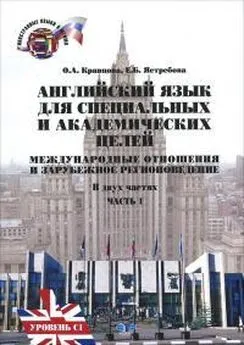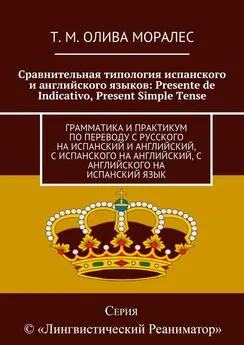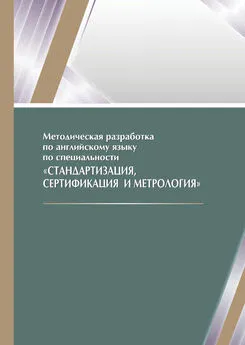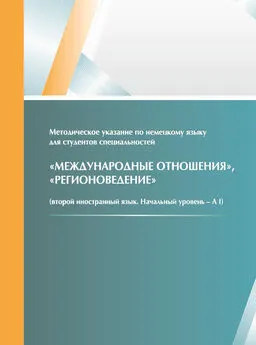Ольга Кравцова - Английский язык для специальных и академических целей: Международные отношения и зарубежное регионоведение. Часть 1
- Название:Английский язык для специальных и академических целей: Международные отношения и зарубежное регионоведение. Часть 1
- Автор:
- Жанр:
- Издательство:МГИМО-Университет
- Год:2015
- ISBN:978-5-9228-1210-8
- Рейтинг:
- Избранное:Добавить в избранное
-
Отзывы:
-
Ваша оценка:
Ольга Кравцова - Английский язык для специальных и академических целей: Международные отношения и зарубежное регионоведение. Часть 1 краткое содержание
Адресовано студентам четвертого курса факультетов и отделений международных отношений и зарубежного регионоведения.
Английский язык для специальных и академических целей: Международные отношения и зарубежное регионоведение. Часть 1 - читать онлайн бесплатно полную версию (весь текст целиком)
Интервал:
Закладка:
Above all, European leaders will need to agree an explicit new deal between surplus and deficit countries and between northern and southern, eastern and western member states. As well as reconciling the Eurozone with the non-Eurozone countries, this deal will need to strike a balance between austerity and budget transfers, liberalisation and social protection, and ways of transferring money from the rest of the world to the eastern and southern neighbourhoods. Such a deal will require many national leaders to recognise that it is in their own national interests to reach consensus about how the Eurozone and the EU should work in the future. They must agree on a vision that is perceived as fair by all member states rather than seeming to penalise any of them.
A break with the one-speed model could create opportunities as well as threats. For example, enlargement has ground to a halt within the current EU. But in a messier multi-speed Europe, there may be new ways to integrate Turkey or Ukraine (although Turkey will not be keen on second-class membership unless it includes visa-free travel). Yet whichever of the institutional options Europe's leaders choose, they are unlikely to close the gap between Europe and its citizens — in fact, they may exacerbate it — unless they also change the content and form of European integration.
/from the essay Four Scenarios for the Reinvention of Europe,
Unit III. EU at the Crossroads
European Council of Foreign Relations, November 2011/
1. Joseph Martin “Joschka” Fischer (born April 12, 1948) is a German politician of the Alliance ‘90/The Greens. He served as Foreign Minister and Vice Chancellor of Germany in the cabinet of Gerhard Schroder from 1998 to 2005. Fischer has been a leading figure in the West German Greens since the 1970s, and according to opinion polls, he was the most popular politician in Germany for most of the government's duration. Following the September 2005 election, in which the Schroder government was defeated, he left office on November 22, 2005. In September 2010 he supported the creation of the Spinelli Group, a europarliamentarian initiative founded with a view to reinvigorate the strive for the federalisation of the European Union.
2. Angela Dorothea Merkel (born 17 July, 1954) is a German politician and a former research scientist, who has been the Chancellor of Germany since 2005 and the leader of the Christian Democratic Union (CDU) since 2000. She is the first woman to hold either office the first German Chancellor to be born after World War II, and the first post-reunification Chancellor to be raised in the former East Germany (though she was actually born in the former West Germany).
Angela Merkel has been described as the de facto leader of the European Union, and was ranked as the world's second most powerful person by Forbes magazine in 2013, the highest ranking ever achieved by a woman, and is now ranked fifth. On 26 March 2014, she became the longest-serving incumbent head of government in the European Union. On 28 May 2014, she was named the most powerful woman in the world, also by Forbes
3. Wolfgang Munchau (born 1961) is considered one of the world's foremost experts on the eurozone. He writes the European economic column of the Financial Times. His latest book, The Meltdown Years: The Unfolding of the Global Economic Crisis, won the prestigious GetAbstract business book award in its original German-language version, Vorbeben. He is the recipient of the 2012 SABEW award for best international columnist.
4. Jean-Claude Juncker (born 9 December 1954) is the 12th and current President of the European Commission, the executive branch of the European Union (EU). A Luxembourgish politician, Juncker was Prime Minister of his native country from 1995 to 2013, as well as Minister for Finances from 1989 to 2009. He was the longest-serving head any national government in the EU, and one of the longest-serving democratically elected leaders in the world, by the time he left office, his tenure encompassing the height of the European financial and sovereign debt crisis. From 2005 to 2013 Juncker served as the first permanent President of the Eurogroup.
5. David Wright Miliband (born 15 July 1965) is a former British Labour Party politician who was the Member of Parliament (MP) for South Shields from 2001 to 2013, and was the Secretary of State for Foreign and Commonwealth Affairs from 2007 to 2010. He and his brother, the current Leader of the Labour Party Ed Miliband, were the first siblings to sit in the Cabinet simultaneously since Edward, Lord Stanley, and Oliver Stanley in 1938.
1. a two-speed Europe
2. a legally binding intergovernmental agreement
Unit III. EU at the Crossroads
3. the inner core/the “euro-core”
4. surplus and deficit countries
5. to sideline the European Commission
6. to speak with one voice
7. the common trade policy / budget / foreign policy / judicial space
8. fragmentation of the EU into formal and informal alliances
9. a coalition with shared interests
10. the break-up of the EU
11. to meet the membership / convergence criteria
12. under the provisions for
13. fall within the scope of the existing treaties
14. a ... Europe of variable geometry
15. to strike a balance between austerity and budget transfers, liberalisation and social protection
1. What lies behind the concept of a two-speed Europe?
2. What does the paradox of the idea of a “euro-core” consist in?
3. Why does the concept of a two-speed Europe pose a danger to the EU both institutionally and politically?
4. What might be the effect of an agreement between the “core” countries on the common judicial space, common foreign policy, and economic issues?
5. How feasible is the danger of the EU fragmentation into a number of alliances?
6. What measures should be taken to prevent the break-up of the European Union?
7. What kind of new agreement is necessary between the surplus and the deficit countries?
8. What might be a positive implication of a two-speed Europe?
1. From what you read, do you think the implementation of a two-speed Europe model would imperil or benefit the EU?
2. What do you make of the one positive implication of a ‘messier' Europe mentioned in the text?

a) the current political and/or economic situation in the EU
b) the relations between the “euro-core” and the other members of the EU
c) the prospects of further EU enlargement

VOCABULARY PRACTICE 1
Unit III. EU at the Crossroads
1. the amount of money that a country or company has left after it has paid for all the things it needs
2. to remove from the centre of activity or attention; place in a less influential position
3. difficult economic conditions created by government measures to reduce public expenditure
4. a condition or requirement in a legal document
5. to choose a moderate course or compromise
6. a coming together of two or more distinct entities or phenomena
7. (of an agreement or promise) involving an obligation that cannot be broken
8. to belong to the area of effectiveness, operation
9. to express the same opinion
10. disintegration, collapse, or breakdown
11. (of an economic system) allowing one sector to grow at a faster rate than another
12. rules for exports and imports, export credit insurance, and the administration of anti-dumping and countervailing duties1 shared by a number of countries
1. ___________________________ of the Maastricht Treaty and the European stability and
growth pact, 27 EU countries, including Britain, are expected to conform to limits on borrowing.
2. A treaty is a ______________________________between two or more sovereign states.
3. Africa will ___________________________ at the upcoming World Summit on Sustainable
Development.
4. US-Britain while launching their murderous attack on Iraq totally ________________ the
Security Council and the UN Secretary General, Kofi Annan, who pulled out his observers from Iraq.
5. ‘'We are building alliances with ___________________,'' said civil rights leader Jesse Jackson
who convened a strategy session in Chicago last week.
6. For each state to adopt the new currency on 1 January 2002, they had to meet the _________________________ set out by the Maastricht Treaty.
7. The external borrowing needs of a country depend in part on the size of the balance of
payments on current accounts and whether it is in ________________ o r_________________.
1Countervailing duty — компенсационная пошлина
8. How is Taiwan going to _________________________ between liberalisation and protection
for its people and markets?
9. All the variants of the worst scenario involve some combination of the collapse of Iraqi
institution and the __________________ of the country into sections that, at least in the
south and west, are ungoverned or without clear authorities.
10. Euro proponents seem to fear that the ___________________ of the eurozone is some kind
of Armageddon.
Unit III. EU at the Crossroads
11. The prohibition on providing technical and financial assistance related to military activities _______________________ of the Treaty.
12. Newcomers outside the euro zone, like Hungary or Latvia, have had to endure horrible ___________________ programmes in the last two years under IMF supervision, while countries inside the euro zone are to be spared IMF programmes.
13. Nicolas Sarkozy made no secret of wanting to increase the power of the heads of state and
government from the 16 euro zone countries, turning them into an ______________________
Europe (that just so happens to look rather like Europe before the big bang enlargement).
14. The concept of a ____________________ Europe is a controversial and highly sensitive
subject.
15. One of the most ambitious proposals that could be found in the drafts for the future of the EU
and the euro zone in particular was the creation of a _______________________, called in the
draft documents a ‘fiscal capacity' for absorbing shocks.
1. Do you think the concept of a common European identity is a myth or reality?
2. What processes are, in your view, fostering / hindering the formation of a common identity?
Читать дальшеИнтервал:
Закладка:










